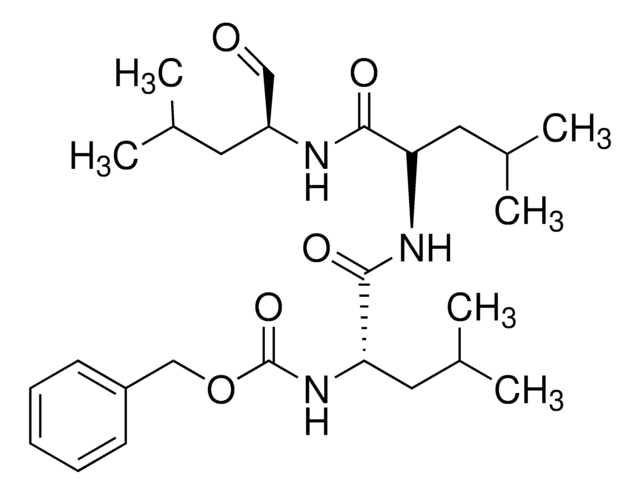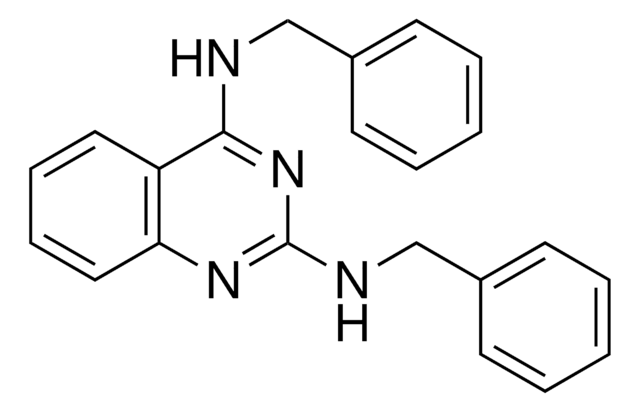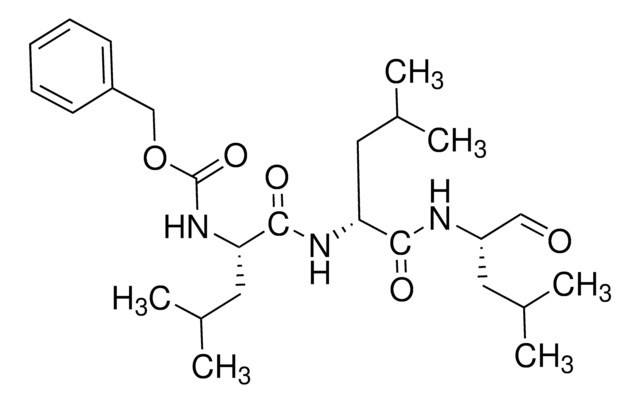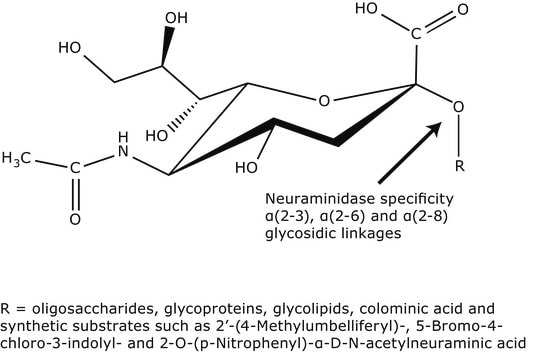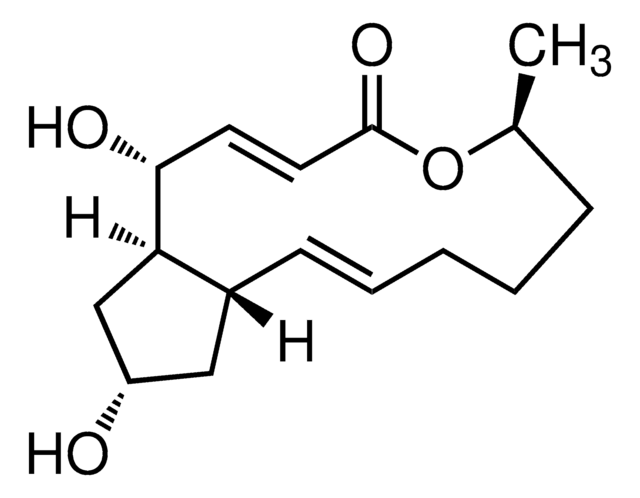E1286
Eeyarestatin I
≥98% (HPLC)
Sinónimos:
3-(4-Chlorophenyl)-4-[[[(4-chlorophenyl)amino]carbonyl]hydroxyamino]-5,5-dimethyl-2-oxo-1-imidazolidineacetic acid 2-[3-(5-nitro-2-furanyl)-2-propen-1-ylidene]hydrazide
About This Item
Productos recomendados
biological source
synthetic (organic)
assay
≥98% (HPLC)
form
powder
storage condition
desiccated
solubility
DMSO: 5 mg/mL
storage temp.
2-8°C
SMILES string
Clc1ccc(cc1)N2C(C(N(C2=O)CC(=O)NN=CC=Cc4[o]c(cc4)[N+](=O)[O-])(C)C)N(O)C(=O)Nc3ccc(cc3)Cl
InChI
1S/C27H25Cl2N7O7/c1-27(2)24(35(40)25(38)31-19-9-5-17(28)6-10-19)34(20-11-7-18(29)8-12-20)26(39)33(27)16-22(37)32-30-15-3-4-21-13-14-23(43-21)36(41)42/h3-15,24,40H,16H2,1-2H3,(H,31,38)(H,32,37)
InChI key
JTUXTPWYZXWOIB-UHFFFAOYSA-N
Biochem/physiol Actions
Other Notes
Storage Class
11 - Combustible Solids
wgk_germany
WGK 3
flash_point_f
Not applicable
flash_point_c
Not applicable
Elija entre una de las versiones más recientes:
¿Ya tiene este producto?
Encuentre la documentación para los productos que ha comprado recientemente en la Biblioteca de documentos.
Los clientes también vieron
Nuestro equipo de científicos tiene experiencia en todas las áreas de investigación: Ciencias de la vida, Ciencia de los materiales, Síntesis química, Cromatografía, Analítica y muchas otras.
Póngase en contacto con el Servicio técnico